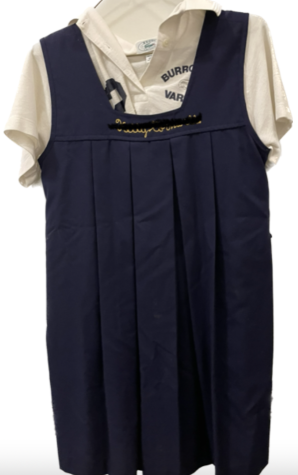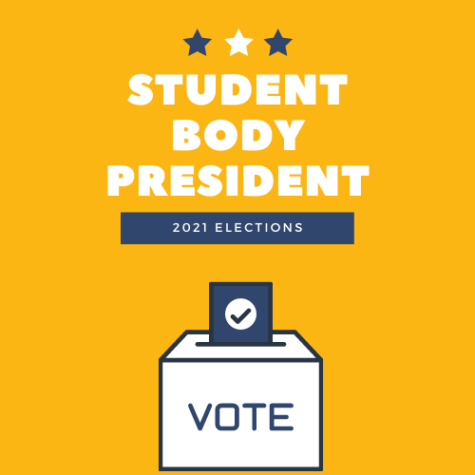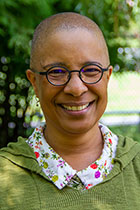The JBS Alum You Need to Know

February 24, 2021
As tests pile up and the stress of the second semester accumulates, you have probably thought to yourself “What is all this for?” Burroughs’ rigorous curriculum and competitive nature to which we subject ourselves to has to have a purpose, right? As many of us focus on getting into college, the light at the end of the tunnel that is JBS, we often ask ourselves, what happens next? The following life obstacle many of us may have to face is deciding the result of all those sleepless nights and hours spent studying: our career path. Although Burroughs has produced many successful alumni, the first that most likely come to mind are that of the more well-known status such as Ellie Kemper, John Hamm, or Ezekiel Elliot. However, for those of us who don’t plan on being professional actors or athletes, but are still unsure of how to utilize the potential that Burroughs implements within us, here’s an alumni you might not have heard of; Rebecca Van Bergen, who graduated from Burroughs in 2000 and WashU in 2006 and started Nest just 2 weeks after her college graduation.
Nest is a non-profit organization that focuses on gender equality, cultural preservation, and increasing global workforce inclusivity. The organization achieves all these goals through one main method: hand crafts. It does so by providing microloans to women around the world to help run or begin their craft businesses. According to their website, buildanest.com, they currently support 1,114 artisanal entrepreneurs across 115 countries. Rebecca was greatly inspired to start Nest by her family, and she also offered some further explanation as to how she came up with the idea: “I grew up in a family of very strong female role models. Working with women always felt like the path I was going to take. Both my mother and my aunt, like I have done now, founded their own non-profits. They set a precedent for following your own path, even if it’s off the beaten track.” Her grandmother specifically, who sewed her mother’s clothes growing up, instilled in her the idea to work in a hand craft-centered business. She said,“This spirit of ‘making’ fostered my appreciation for artisanship and contributed to my later decision to explore craft as a mechanism for social change on the global scale.”
Rebecca also found inspiration in Muhammed Yunus, who won the Nobel Peace Prize in 2006, the year Nest was founded, for his work in microcredit and microfinance. These sources of influence throughout her life all helped inspire Nest’s core beliefs. “I knew that I wanted to explore the opportunities for economic development that would not put people in debt, but would instead provide them with the resources, training, infrastructure and support to create change through their own means. This provided the backbone for Nest and it remains our mission today,” Rebecca said.

In an interview with heartsonfire.org, she shared how she hopes to strengthen the market for handicrafts that support cultural traditions and women. She stated, “Craft is primarily the work of women. So, even though artisan craft-making is a $32-billion industry, and the second largest employer of women in emerging markets behind only agriculture, it is still viewed by some, and dismissed by others, as ‘simply’ women’s work.” In developing countries, such as the ones many Nest recipients live in, women are left with no choice but to work in dangerous factories in order to make a living, forcing them to face harassment. Nest allows for women to make their handcrafts at home, which is better for the environment, and assists in decreasing child labor. According to the nonprofit’s website, in 2019 the rate of age verification policies in place rose substantially from 27.9%, to 52.1%. In addition to this, 81% of Nest recipients also agree that working from home allows for them to better care for their children.
The other large benefit of the organization is its recipients’ ability to be noticed by larger, worldwide businesses. In 2009, they began brand partnerships, creating a dual revenue stream, and allowing for the small businesses to sell their crafts at bigger stores such as Target, Madewell, Patagonia, J Crew, and many more. In 2017, The Nest Standards for Home and Small Workshops launched at the United Nations, providing a standard tool of evaluating ethical production outside of factories. This allows high qualitiy products to be made in an environmentally friendly and ethical way, as well as reducing the risk of child labor. The Nest seal of Ethical handcraft can be found on many of their products, letting customers know that it was produced ethically in a home or small workshop. While much of the craftsmanship embedded in traditions and culture are at risk of being lost, Nest is committed to keeping these cultural practices alive and authentic by providing a variety of resources to help them succeed. One example of this is Nest Sourcing, which helps eliminate the middleman between artisans and bigger businesses to sell their crafts ethically. And, in 2019, as a result of this continued support, it was found that over 80% of Nest’s Artisan Guild businesses (ones that they provide support to through loans and seminars) increased their revenue greatly. Mrs. Van Bergen connected her success to her time at JBS, revealing how it contributed to her future endeavors: “I loved my time at Burroughs. It is an incredibly special place that helped pour the foundation of so many of the values that I still hold so dear: hard work, empathy and service to others among them.”
To those intrigued by Nest and the prospect of a similar career path, Rebecca offered some advice, simply saying, “Start! Many people think entrepreneurs are visionaries and they are. But the difference between an entrepreneur and a dreamer is that both the entrepreneur and the dreamer wake up every day, look at the mountain in the distance and dream, but the entrepreneur shifts her gaze to her feet and starts walking!” She continued, “People often get overwhelmed with global or national challenges that need solving, I am an avid list maker and really encourage my team to wake up every day and just write down what we need to accomplish that day alone. Just one day. If we do that every day, at the end of the year we look back and change has happened.”





